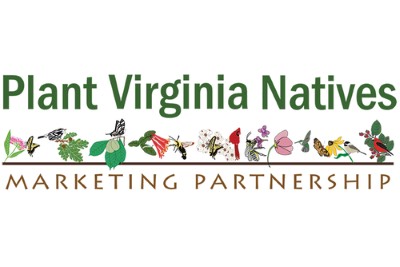
The Plant Virginia Natives initiative is offering a Landscaping with Virginia Natives webinar series this year which has already reached over 3,000 citizens across the state.
Over 2,800 home gardeners participated in the first 6 webinars last spring. Hundreds more have watched the recordings now available on PlantVirginiaNatives.org.
Six more webinars are scheduled this fall and open to 2,000 additional participants. The webinars begin on Sept. 1 and run bi-weekly through Nov. 9, with topics focused on the beauty of native landscapes all year round.
Register for the series today through PlantVirginiaNatives.org or lewisginter.org. The $10 registration fee for all the webinars is not only a great value, but will be instrumental in helping Plant Virginia Natives with its plans to offer more programming and resources.
The webinar series began with a presentation by entomologist, researcher and author, Dr. Doug Tallamy. A core concept of Tallamy’s recent book, Nature’s Best Hope, is an idea he calls the Homegrown National Park, one that is created by us, as individuals–in our own yards.
“The message of the 12-part series is that every home landscape, with lawn areas reduced and planted with natives makes a big difference, and that the cumulative efforts of home gardeners across the state helps create habitat corridors,” explains Virginia Witmer, coordinator of the series with the Virginia Coastal Zone Management Program, a network of state agencies and coastal localities which administer Virginia’s coastal protection laws and is led by the Virginia Department of Environmental Quality.
Dr. Tallamy conducted a study that directly ties breeding success of birds to landscape decisions made by homeowners. Tallamy’s research focused on the Carolina Chickadee, a species that needs insects to reproduce and survive, including thousands of caterpillars to rear its young. Residential yards dominated by non-native plants have fewer plant-eating caterpillars.
The research found that if yards in the chickadee’s nesting and foraging range have more than 70 percent native plant biomass, chickadees have a chance to sustain their local population. As soon as the native biomass drops under 70 percent, that probability quickly plummets to zero. These observations of the chickadee are a loud, conservation alarm for other birds like the warblers, vireos and thrushes.
Tallamy says that in 84 percent of the counties in the U.S., native oaks are the most important tree followed by native cherries and native willows. When you chop these down, you are changing that area’s ecosystem.
Although many organizations were engaged in planning the webinar series, Witmer noted that particular thanks goes to Lewis Ginter Botanical Garden, which has played a key role in the series, handling registration and serving as a host. Blue Ridge PRISM, an organization focused on invasive species management, hosted Tallamy’s presentation.
They and the following organizations answered hundreds of questions online from gardeners this spring: Virginia Native Plant Society, Maymont Foundation, VDOT Pollinator Habitat Program, Virginia Master Naturalists, Virginia Master Gardeners, New River Valley Regional Commission, and the James River Chapter of the Garden Club of Virginia.
The benefits of working together is a proven strategy modeled by Plant Virginia Natives. “The webinar series is an example of how collaboration among our many partners helps us reach into all corners of the state with our shared message about the numerous benefits of Virginia’s native plants,” emphasizes Witmer.










